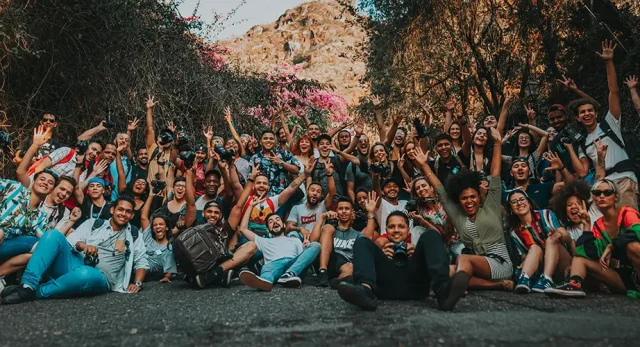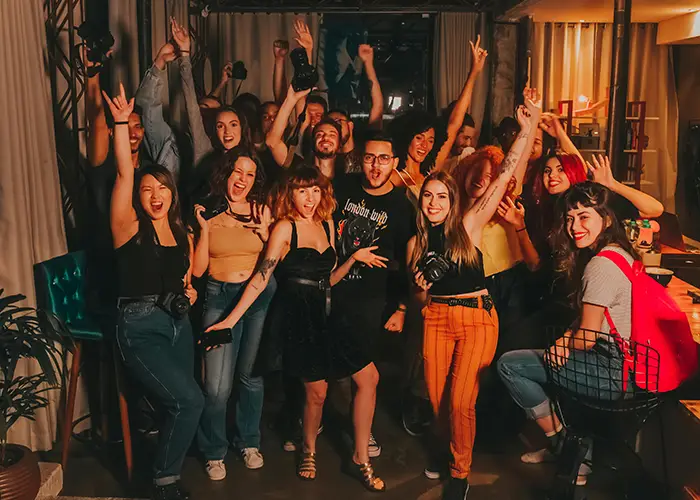
Brazil: the land of Carnival, legendary beaches, and a warmth that rivals its tropical sun. It is a country that welcomes visitors with an open heart, but a truly successful trip – one that moves beyond mere sightseeing to genuine connection requires more than just a phrasebook and a comfortable pair of sandals. It demands an appreciation for the subtle, often unwritten, rules of Brazilian social conduct.
Navigating this vibrant, relationship-driven culture can be a delicate dance. Misunderstandings are easy, but a little preparation goes a long way toward building rapport with the famously friendly Brazileiros.
From how you greet a new acquaintance to the words you choose, here is your essential guide to Brazilian cultural etiquette, ensuring you are welcomed as a friend, not just a tourist.
Greetings and Personal Space
Brazilians are famously expressive and value close personal contact. They are not a culture of reserved handshakes and large personal bubbles.
The Do’s:
- Embrace Proximity: Expect people to stand close to you during a conversation – it signifies interest and engagement. Do not back away, as this can be interpreted as coldness or a sign of distance.
- Master the Cheek Kiss: When greeting women, and sometimes men, an air kiss on the cheek (or two, or even three, depending on the region) is common.
Follow the local lead, but a warm handshake and direct eye contact are a safe start for both men and women. Always take the time to greet and say goodbye to everyone present in a group, individually. - Use First Names: Brazilians are generally informal. While formal titles like Senhor or Senhora are polite for initial introductions in professional settings, they will often quickly transition to first names.
- Show Affection and Emotion: Expressive body language, including light touching of the arm or back during conversation, is a sign of friendliness and trust.
The Don’ts:
- Avoid the ‘OK’ Sign: The common ‘OK’ gesture is considered rude & vulgar in Brazil. Stick to a simple “thumbs up” to signal approval or “great.”
- Do Not Rush the Greeting: Rushing through a greeting to get straight to business is a cultural misstep. Always take a moment for genuine small talk about family, travel, or football before diving into the main topic.
Communication: The Indirect and the Expressive
Communication in Brazil is layered with warmth, passion, and an indirect style designed to maintain harmony and avoid confrontation.
The Do’s:
- Speak Portuguese: Even a few basic phrases will be met with appreciation. While English is spoken in major tourist areas, showing you have made an effort to use their language goes a very long way.
- Be Patient with Punctuality: The concept of “Brazilian time” is real, especially for social gatherings. It is customary, and even polite, to arrive 15-30 minutes late to a dinner party. However, for a formal business meeting or a tour, as a traveler, you should strive to be on time.
- Use Full Responses: When answering a question in Portuguese, simply saying Sim (Yes) can sound abrupt. It’s polite to respond with a fuller phrase, such as Sim, por favor (Yes, please).
The Don’ts:
- Don’t Assume The Language: Despite its location, Spanish is not the language of Brazil. Assuming a Brazilian speaks Spanish because they are in “Latin America” can be taken as an insult to their distinct cultural identity.
- Avoid Direct Criticism: Brazilians are fiercely proud of their country. Avoid criticizing Brazil to a Brazilian. If you must say ‘no’ or decline an offer, do so gently and indirectly. A direct, blunt refusal is considered impolite.
- Steer Clear of Sensitive Topics: Unless you know someone very well, avoid discussing sensitive subjects like politics, religion, poverty, or deforestation. Safe topics include football, family, music, and the country’s natural beauty.
Practical and Travel Etiquette: More Than Just Manners

Navigating Brazil also involves knowing a few practical ins and outs, especially regarding your travel documentation and possessions.
The Do’s:
- Be Discreet with Valuables: Leave the expensive jewelry and flashy accessories at home. When using your phone or camera in public, be aware of your surroundings, especially in busy cities and tourist areas. This is a matter of safety, not just manners.
- Tip the Service Charge: While a 10% service charge is often included in restaurant bills, it is customary to leave a small additional tip for excellent service, especially in informal settings.
The Don’ts:
- Do Not Flush Toilet Paper: In many parts of Brazil, the plumbing systems cannot handle toilet paper. Always place it in the small bin provided next to the toilet.
- Do Not Forget Your Documentation: Before you arrive, you will need to prepare all your travel paperwork. An essential element for certain travelers – especially those bringing high-value or commercial goods into the country – is the completion of the Electronic Declaration of Traveler’s Goods (e-DBV). The required information for the Brazil e-DBV form submission typically includes your personal details, travel information (flight/transport, port of entry, date), and a detailed itemization of high-value goods (make, model, serial number, and value) or goods exceeding the tax-free limit.
This is a crucial administrative step that ensures a smooth customs clearance and a legal entry into the country with your personal effects.
Conclusion
Traveling to Brazil is a chance to experience a culture defined by alegria (joy) and a profound sense of community. By taking the time to understand these key cultural Do’s and Don’ts, you show a level of respect and engagement that will instantly endear you to the local population.
Abandon your northern reserve, embrace the warmth, master the casual air kiss, and treat your Brazilian hosts with genuine curiosity and friendliness. Do this, and you won’t just visit Brazil – you’ll feel its pulse.
Safe travels, or as the Brazilians say, Boa Viagem!





